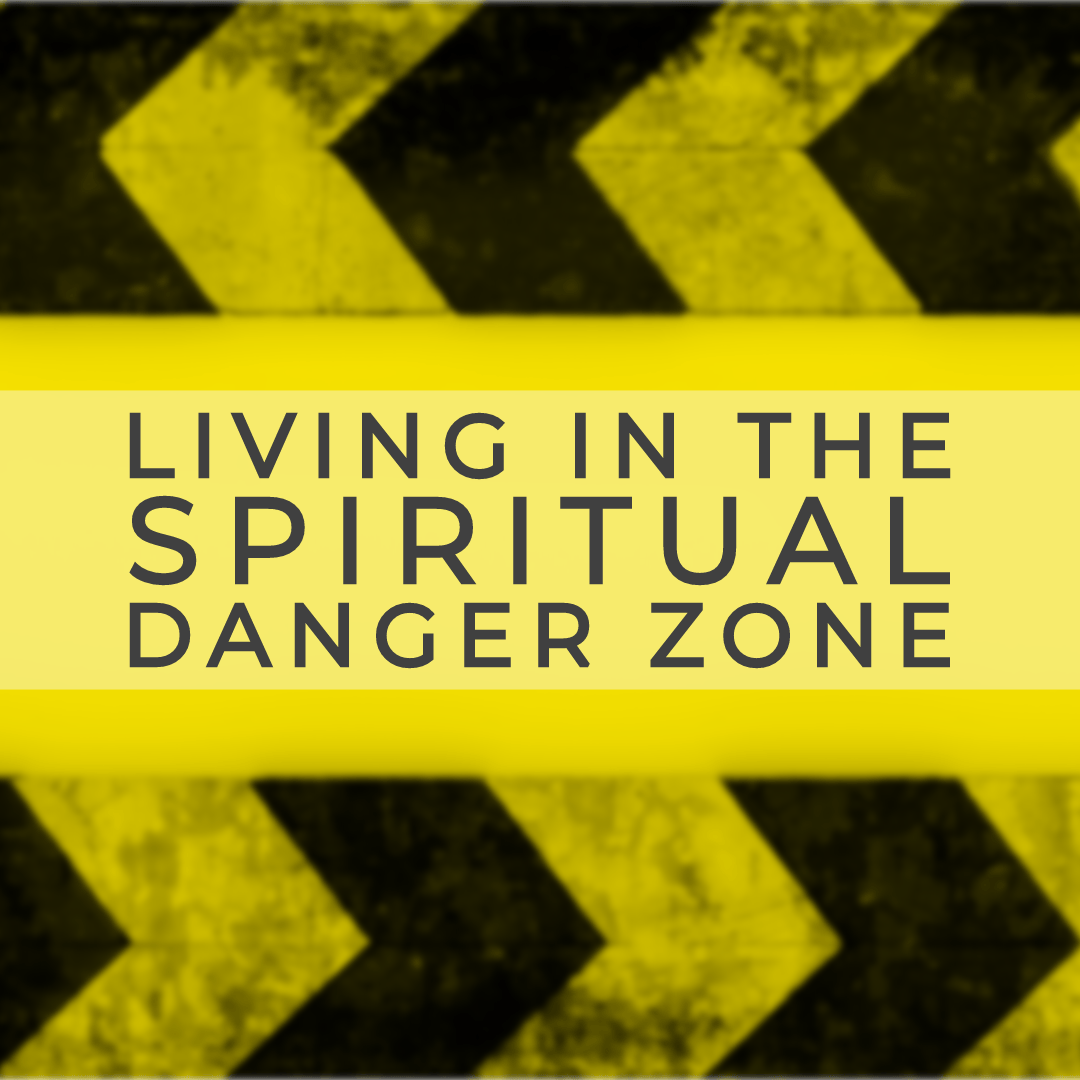The New Testament describes what life should look like for followers of Jesus Christ. But I hear more and more believers talking about that life as if it’s a lofty goal rather than how they actually strive to live. I think that’s dangerous. So how do you know if you’re living in the spiritual danger zone? Well, below are four questions. If you’ll answer these questions thoughtfully and honestly you’ll get a pretty good idea of where you are. If you’re already thinking that you’re a fairly average church-going believer…that might be the first warning flag.
Do you really believe the Bible?
STOP! Resist the urge to think, “Yes, I believe the Bible” and skip to the next section. This question isn’t about what you think or say but what you actually do. In other words, how you go about everyday life is proof of what you really believe.
Many Christians have slowly made concessions to their core beliefs to stay more up-to-date with culture. But like the frog in the kettle, adapting to changes in cultural thinking harms your walk with Christ. There should be a distinction between how believers live and how the lost world lives; especially the more our culture moves away from God’s Word and God’s ways (2 Corinthians 6:17; 1 John 2:15-16). And it’s much easier to compromise on what Scripture says if you’re not reading it regularly.
How often do you read the Bible?
Recent polls show that only a small number of church-going Christians read the Bible daily. On top of that, only 38 percent of pastors have a biblical worldview, which means their sermons are based on personal preferences and cultural norms. As a result, numerous professing Christians believe a mixture of things from any number of different religions.
So every believer needs to be like the Bereans, who listened to Paul’s preaching “with great eagerness, examining the Scriptures daily to see whether these things were so” (Acts 17:11). You see, a false gospel isn’t just saying things that oppose the Bible; it’s not saying everything that is in the Bible.
Too many sermons, Bible studies, and religious podcasts omit things such as repentance, death to self, and total surrender to a sovereign and righteous God. They teach God’s love but not His holiness. They avoid hot button subjects and use many of the same buzz words you hear in common culture. That’s a huge red flag! So-called “updating your beliefs” brings the inerrancy of Scripture into question. Once you do that, you start questioning its authority in your life.
Are your decisions based on the authority of Scripture?
Adjusting your biblical beliefs to be more in line with current thinking puts you in a dangerous situation. Because if the decisions you make every day aren’t based on the authority of Scripture, then they will eventually be based on lies. And it can happen so fast that it’ll make your head spin! In a moment, Adam and Eve believed a lie and acted on that belief. It’s arrogant to think you and I would do any better if our minds aren’t saturated in the truth of God’s Word.
The enemy still comes along and plants the question, “Has God really said…?” (Genesis 3:1). It’s crucial in that moment to know the answer. What does the Bible say on that matter? The world, the devil, and your sin nature all lead you to focus on how you see yourself rather than how God sees you. They ask how you feel about what the Bible says rather than tell you why God said it. Any time your feelings take precedence over the facts of Scripture, you’re in the spiritual danger zone.
Erroneous beliefs lead to delusional decisions. You see, there are two ways of not knowing something: 1) being ignorant and 2) being deceived. You’re most vulnerable to deception when you’re most ignorant. Research after research shows that only a third of protestant church attenders read their Bible daily; and that only seven percent have read the Bible in its entirety. Combine that with the previously mentioned 62 percent of pastors who don’t have a biblical worldview and you begin to recognize how fertile the ground is for deception.
What distracts you from the things of God?
Play, pleasure, and work have always been suitable distractions for the devil in his work of deception (Matthew 24:37–39). I’ve been preaching for forty years, and I’ve never seen the appetite for play and pleasure greater than it is today. Even among Christians, the things of God are pushed down the list of priorities because the schedule is just too busy to fit it in. I can tell you from experience, that if you don’t prioritize the Word of God in your life—both personal reading and corporate worship—you’ll be more susceptible to the enemy’s lies and attacks.
Are you living in the spiritual danger zone?
It really is possible to live the life described in the New Testament. In fact, it’s the life God intends for you to live; but you cannot do it without making Him your top priority. Does that life always seem just out of reach? Then I challenge you to spend 15 minutes a day reading the Bible for a month. Put down your phone, turn off the television, get up early if necessary.
You see, every day that you don’t put truth in your mind is a day that your feelings can lead you astray. Every day that you’re too distracted to spend time in God’s Word is a day you could question, “Did God really say…?” And it’s a short slide from there to making important life decisions based on deception and lies instead of on the solid foundation of biblical truth.
